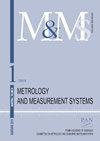A feedback weighted fusion algorithm with dynamic sensor bias correction for gyroscope array
IF 1.1
4区 工程技术
Q4 INSTRUMENTS & INSTRUMENTATION
引用次数: 1
Abstract
Low-cost Micro-Electromechanical System (MEMS) gyroscopes are known to have a smaller size, lower weight,andlesspowerconsumptionthantheirmoretechnologicallyadvancedcounterparts.However,current low-gradeMEMSgyroscopeshavepoorperformanceandcannotcompetewithqualitysensorsinhigh accuracynavigationalandguidanceapplications.Themainfocusofthispaperistoinvestigateperformance improvementsbyfusingmultiplehomogeneousMEMSgyroscopes.Thesegyrosaretransformedinto avirtualgyrousingafeedbackweightedfusionalgorithmwithdynamicsensorbiascorrection.The gyroscopearraycombineseighthomogeneousgyroscopeunitsoneachaxisanddividesthemintotwo layersofdifferentialconfiguration.Thealgorithmusesthegyroscopearrayestimationvaluetoremovethe gyroscopebiasandthencorrectthegyroscopearraymeasurementvalue.Thenthegyroscopevarianceis recalculatedinrealtimeaccordingtotherevisedmeasurementvalueandtheweightedcoefficientsand stateestimationofeachgyroscopearededucedaccordingtotheleastsquareprinciple.Thesimulations andexperimentsshowedthattheproposedalgorithmcouldfurtherreducethedriftandimprovetheoverall accuracybeyondtheperformancelimitationsofindividualgyroscopes.Themaximumcumulativeangle errorwas − 2 . 09 degrees after 2000 seconds in the static test, and the standard deviation (STD) of the output fusion value of the proposed algorithm was 0.006 degrees/s in the dynamic test, which was only 1.7% of the STD value of an individual gyroscope.陀螺仪阵列动态传感器偏置校正反馈加权融合算法
众所周知,低成本的微机电系统(MEMS)陀螺仪比技术更先进的陀螺仪尺寸更小,重量更轻,功耗更低。然而,目前低等级的mems陀螺仪性能差,无法与高质量的传感器在高精度导航和制导应用中竞争。Themainfocusofthispaperistoinvestigateperformance improvementsbyfusingmultiplehomogeneousMEMSgyroscopes。Thesegyrosaretransformedinto avirtualgyrousingafeedbackweightedfusionalgorithmwithdynamicsensorbiascorrection。陀螺仪阵列将八个同质陀螺仪单元组合在一起,并将其分为两层差分配置。Thealgorithmusesthegyroscopearrayestimationvaluetoremovethe gyroscopebiasandthencorrectthegyroscopearraymeasurementvalue。根据修正后的测量值,实时重新计算陀螺的方差,并根据最小二乘原理推导出各陀螺的加权系数和状态估计。仿真和实验表明,该算法可以进一步降低漂移,提高整体精度,超越单个陀螺仪的性能限制。最大累计角度误差为−2。在静态测试中,该算法的输出融合值的标准差(STD)为0.006度/s,仅为单个陀螺仪STD值的1.7%。
本文章由计算机程序翻译,如有差异,请以英文原文为准。
求助全文
约1分钟内获得全文
求助全文
来源期刊

Metrology and Measurement Systems
INSTRUMENTS & INSTRUMENTATION-
CiteScore
2.00
自引率
10.00%
发文量
0
审稿时长
6 months
期刊介绍:
Contributions are invited on all aspects of the research, development and applications of the measurement science and technology.
The list of topics covered includes: theory and general principles of measurement; measurement of physical, chemical and biological quantities; medical measurements; sensors and transducers; measurement data acquisition; measurement signal transmission; processing and data analysis; measurement systems and embedded systems; design, manufacture and evaluation of instruments.
The average publication cycle is 6 months.
 求助内容:
求助内容: 应助结果提醒方式:
应助结果提醒方式:


